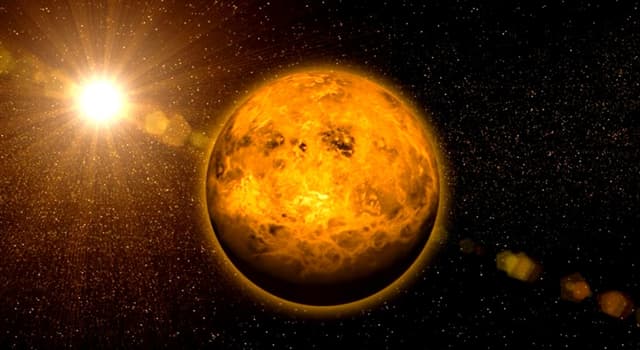Researchers have discovered significant sources of phosphine in the atmosphere of Venus. The presence of the gas on the planet is believed to be a possible sign of life on Venus
Life on Venus? Incredible news has been announced by a team of astronomers on Monday. This is being considered one of the most important discoveries in decades. Possible evidence for life has been announced on Earth’s inhospitable neighbour- VENUS. The news of the probability of potential life on Venus is as exciting as perhaps it is surprising to many of us.
Researchers have discovered significant sources of phosphine in the atmosphere of Venus, a gas that they say is a possible sign of life. Despite the inhospitable environment on the surface, some microbial life may be able to survive in the planet’s atmosphere.
Did the presence of poisonous gas suggest life on Venus?
Venus is the brightest object in the night sky after the moon and has intrigued humans for thousands of years. Some scientists have suspected that the Venusian high clouds, with mild temperatures around 86 degrees Fahrenheit (30 degrees Celsius), could harbour aerial microbes that could endure the extreme acidic atmosphere of the planet as clouds of Venus are made up of around 90 percent sulphuric acid.
The researchers also argue that conventional abiotic mechanisms producing phosphine gas couldn’t entirely account for the unusually high presence of phosphine gas they detected in the atmosphere of Venus. In other words, some of the phosphine gas could have been the result of organic processes. Scientists believe that phosphine could have been created through abiotic processes, including sunlight, minerals blown up from the surface, volcanoes, and even lightning.
The team of researchers did their very best to explain this discovery without the need for a biological process. It is for now very difficult for them to explain the presence of phosphine in the clouds of Venus, and therefore they are believing that some kind of exotic process is producing phosphine.
Did discovery of Phosphine gas elevate the planet’s appeal?
So far, Venus hasn’t topped the list of planets seen by astrobiologists as most likely to harbour life. For years, we have looked to Mars as our best bet for finding life in the solar system. Space agencies of different countries were investing in Orbiters, Landers, and Rovers on Mars than Venus as it is a very hostile place for any kind of life.
The surface of Venus is scorchingly hot for complex molecules to survive. The temperature of the planet reaches to around 880 degrees Fahrenheit (471 degrees Celsius), hot enough to melt lead. On Venus, there is a sweet spot at 48-60 km above its surface, in the clouds, where the temperature is not too hot, not too cold, but just apt for life to grow and survive. The research continues to either confirm the presence of life or find an alternative explanation.
According to researches, phosphine gas is often produced as the result of organic matter breaking down on Earth. Phosphine is toxic to any life on Earth that uses oxygen, including humans. Often used as a chemical warfare agent in World War I and is associated only with the manufacturing of pesticides or with life in oxygen-free environments.
This recent discovery is extremely surprising and impressive because the atmosphere of Venus is not suitable for the formation of phosphine. In order to complete its formation process, the gas requires a lot of hydrogen, the right temperature, and appropriate pressure. It is believed that the required conditions are found on planets like Jupiter and Saturn, but there is no way that such conditions are present on the atmosphere of Venus.
But still, the presence of phosphine on the surface of the second planet to the sun has brought a little ray of hope in the field of science, where researchers and scientists believe that there is a possibility of the presence of life on Venus. Scientists will now have one more option in the solar system, other than Mars to search for life.

